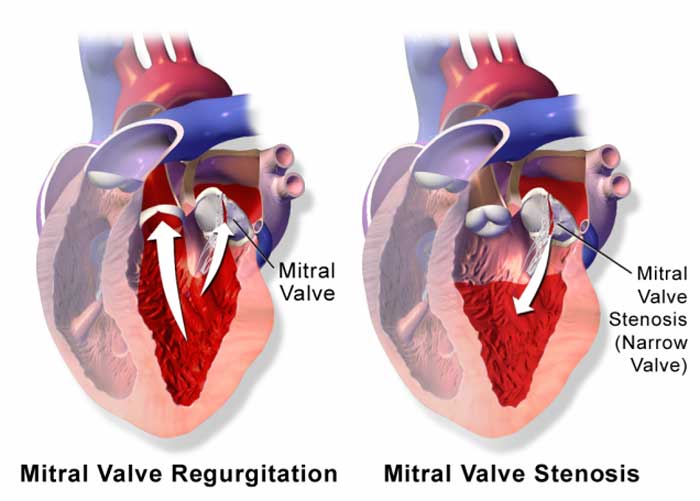Mitral Regurgitation Treatment in Hyderabad
#Top 10 Best Cardiologists in India

The heart always pumps blood in a specific direction. But in some rare cases, the blood flow goes the wrong way. Mitral valve regurgitation is one condition in which the blood flows backward instead of the rest of the body.
This happens when the valve between the left chambers of the heart do not close completely. It is one of the most common form of heart valve disease. This makes it difficult for the blood to move through the heart & the rest of the body.
Mitral Valve Regurgitation is also known as mitral insufficiency or incompetence.
The most common cause of mitral insufficiency is the mitral valve damage. It can either be congenital or due to a heart attack. Other causes may include
A build up of calcium
Rheumatic fever
Bacterial infection known as infective endocarditis which attacks the lining of the heart chambers & valves
Does it cause any complications?
Mitral Regurgitation, when severe, can cause blood clots which can create complications if they get to the lungs or brain. It may also lead to build up of fluid in the lungs, putting strain on the right side of the heart.
Regurgitation in the long run can put strain on your heart, enhancing the patient’s risk of heart failure. It can also lead to irregular heartbeat or stroke.
What are the symptoms?
When mitral regurgitation is in its mild state, there may not be any symptoms. But, if the condition worsens, the patient will experience some or all of the following symptoms:
Heart Palpitations
Cough
Tiredness
Shortness of breath
Pain or discomfort in the chest
How is it diagnosed?
Your doctor would perform a physical exam & enquire about your medical history & symptoms. Some tests used to diagnose this condition include:
Echocardiogram
Electrocardiogram: This is used to measure the electrical signals of the heart to detect arrhythmias related to mitral valve disease.
Chest X Ray: It is a quick & easy test that helps diagnose an enlarged heart or fluid in the lungs.
Cardiac MRI: This involves use of magnetic fields & radio waves to create detailed images of the heart.
Exercise Tests: This involves the patient walking on a treadmill while heart rate is monitored.
How is it treated?
Mitral valve regurgitation treatment aims to improve heart function, reduce the signs & symptoms, and prevent further complications Treatment depends on various factors such as stage of regurgitation, severity of symptoms among other factors. Treatment options include:
Healthy lifestyle changes such as managing blood pressure, eating a heart healthy diet, getting regular physical activity, avoiding alcohol & tobacco.
Regular follow ups with your cardiologist.
Medications such as diuretics, blood thinners & blood pressure medications.
Mitral valve Repair: This is performed to save the existing valve & preserve the function of the heart. It may involve reconnecting the valve flaps, patching holes in the valve, removing excess tissue from the valve, repairing the structure.
Mitral valve replacement: This involves removing the mitral valve & replacing it with a mechanical valve or one made from an animal or human heart tissue.
Dr Sudheer Koganti is the best cardiologist in Hyderabad & offers the best treatment for mitral valve regurgitation.


